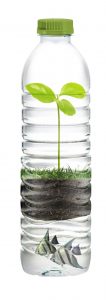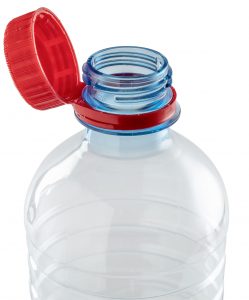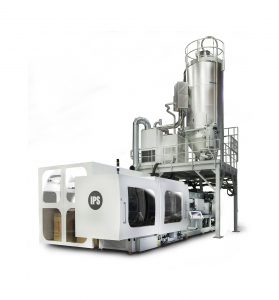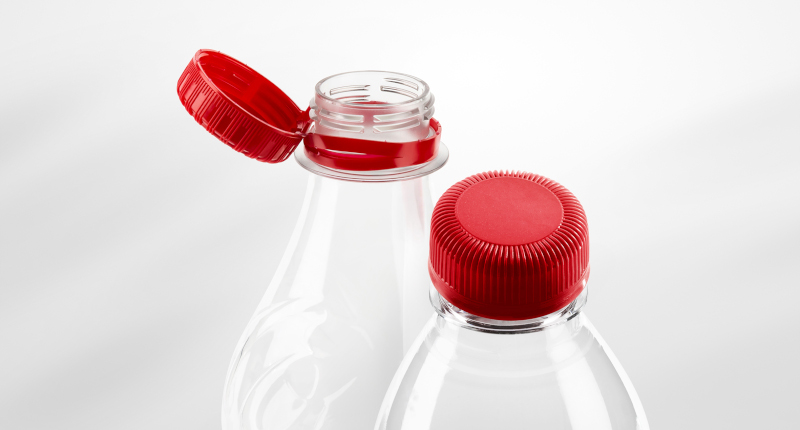Sacmi – The sustainable ‘package’

As it plays its part in the establishment of a circular economy, Sacmi meets the challenge of generating sustainable innovation every single day. In doing so it draws on a broad yet in-depth understanding of materials and processes to develop solutions that reduce raw material/energy consumption and create new technologies and prototypes.
For some years now, most of the topics discussed in company press releases or in-depth industry magazine articles have referred to issues such as sustainability, circularity and the reuse of materials. Each of these topics is, of course, dealt with in a way that reflects the interests and goals of the author. The driving force behind Sacmi’s Rigid Packaging Technology Business Unit is research and development. Its goal? To provide lighter packaging solutions made of innovative, increasingly high performance materials.
R&D lab: Research and innovation

For over 15 years, the Business Unit’s R&D facility has been developing cap+neck combinations that maximize performance and minimize weight across the full range of Beverage industry applications. By the early 2000s Sacmi was already thinking – even though it did not yet have a preform production plant solution in its portfolio – in terms of ‘package development’: that is, the highest-performing combinations in terms of both seal and correct, easy breakage of the anti-tamper band during opening (e.g. development of the ML27 neck). What’s more, for years Sacmi has actively worked alongside CETIE, the body that regulates and defines PET and glass packaging standards and guidelines. Many of the solutions currently found in the most popular necks on the market were, in fact, conceived and designed in the Sacmi Laboratory.
Solution for PET preforms
This segment has grown considerably over the last 10 years, gradually evolving to form Sacmi’s PET preform injection proposal, the IPS (Injection Preform System) range. Progress in this area has boosted Sacmi’s ability to design solutions that take a ‘capsule-preform package’ approach right from the design stage.

In addition to cap+preform solutions with ever-lighter caps, suitable for all standard necks and a wide range of applications, Sacmi has also developed a series of lightweight necks which, together with dedicated cap solutions (again characterized by lightweighting), aim to reduce the overall package weight, making the industrial-scale solution more sustainable.
This strategy has been highly successful, especially on emerging markets, and has allowed Sacmi to establish itself as a key preform player. Customers have, then, found a sole, skilled, reliable interlocutor capable of providing solutions that fit their needs to perfection.
Injection press range

The range of platforms includes 3 models (220t, 300t and 400t). These feature molds with up to 144 cavities and offer multiple combinations of hot runners in order to create combinations that match required product volumes and geometries perfectly. All the platforms have been designed with a focus on the four key drivers for this type of plant:
- Performance
- Reliability
- Flexibility
- User-friendliness
Combining these four characteristics was a complex, demanding exercise: yet it has ultimately made the IPS a winner, achieving Sacmi’s goal of providing the market, in this area too, with a solution that stood out immediately on account of reliability and performance.
Compression, a winning technology
On the closures front, the CCM platform has been the leading flat-top cap technology for many years. Although proponents of injection try to link compression to heavier capsules (typical of the CSD world), the reality is that CCM machines have also achieved exceptional results in the mineral water sector, providing cycle times of 1.44 seconds on the lightest capsules (thanks to COOL+ technology) and extremely precise, consistent product size and weight. Unsurprisingly, Sacmi accounts for the vast majority of sales of these light cap manufacturing applications.
Compression technology has been the dominant technology in the beverage cap sector for almost 30 years, as the more than 1,800 machines sold worldwide clearly demonstrate. This technology doesn’t just ensure consistent, precise size and weight: it also guarantees better performance than injection in terms of energy consumption, size/color changeover times and the structural quality of the caps. These advantages largely stem from the broad, versatile range of resins that can be employed and the fact that extrusion and molding systems do not use hot runners.

All CCM lines feature a video camera quality control system and band slitting-folding system. This solution is clearly preferable to a band with injection-molded bridges, also in the case of tethered cap manufacturing. As soon as the European Commission first decided on the adoption of tethered closures for bottles smaller than 3 liters, Sacmi immediately developed a series of solutions for all the main standard and lightweight necks.
Indeed, the ready-to-market range in this field is already a broad one. Needless to say, the Sacmi Laboratory is constantly developing further solutions.
For further information: [email protected]

